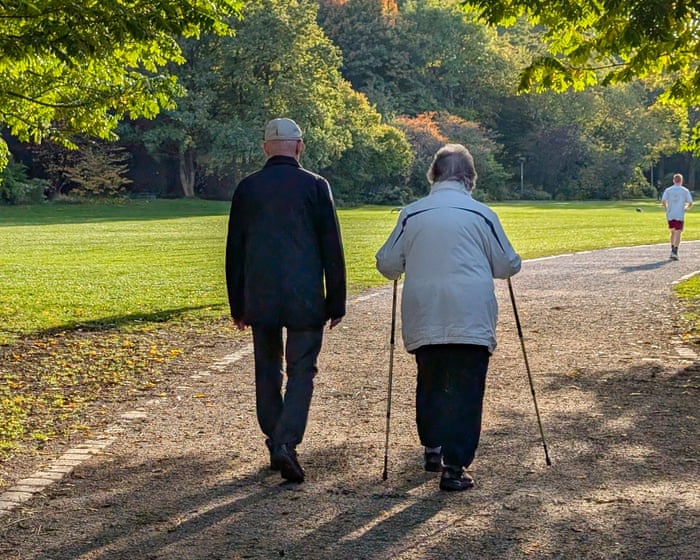Walking just 4,000 daily steps once a week cuts risk of early death in older people, study suggests
Researchers say the target significantly reduces risk of dying and lowers likelihood of cardiovascular disease
Older people who only walk 4,000 daily steps once a week still reduce their risk of dying early by a quarter, a study suggests.
Staying active is known to bring a wide range of health benefits. But many people in their 60s, 70s and beyond may struggle for a variety of reasons to maintain the step count they used to reach. Until now it has been unclear how much people need to do as they age to reap the rewards.
Continue reading...
© Photograph: Michael Nguyen/NurPhoto/Shutterstock

© Photograph: Michael Nguyen/NurPhoto/Shutterstock

© Photograph: Michael Nguyen/NurPhoto/Shutterstock








